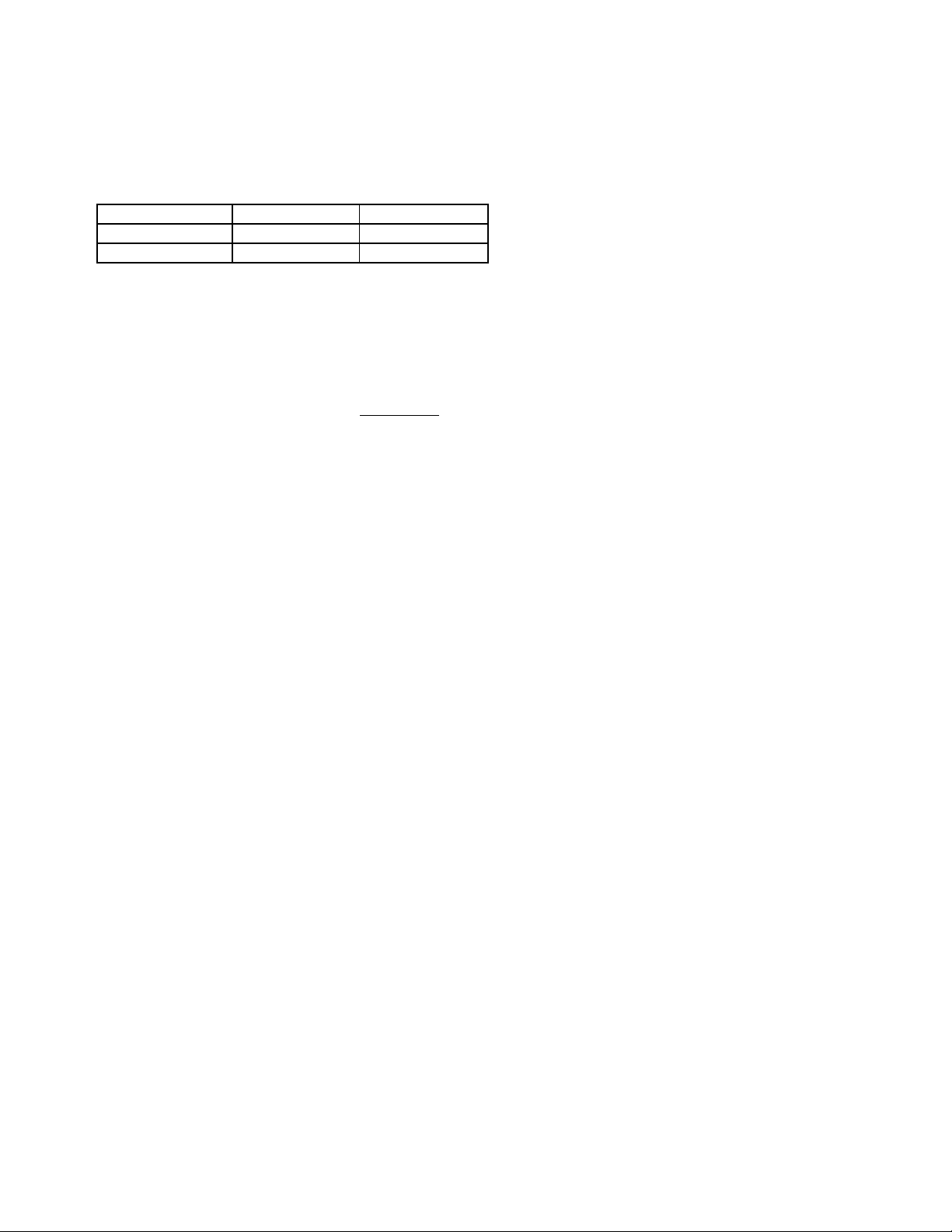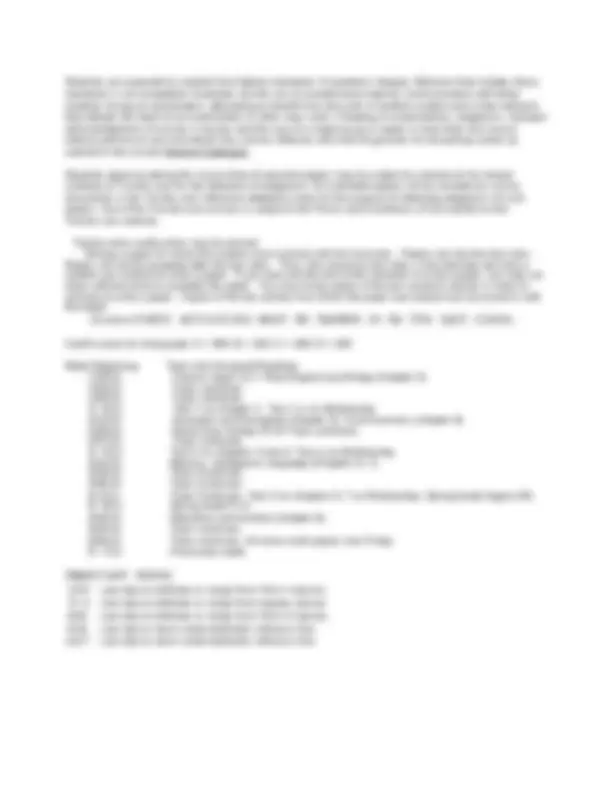



Study with the several resources on Docsity

Earn points by helping other students or get them with a premium plan


Prepare for your exams
Study with the several resources on Docsity

Earn points to download
Earn points by helping other students or get them with a premium plan
Community
Ask the community for help and clear up your study doubts
Discover the best universities in your country according to Docsity users
Free resources
Download our free guides on studying techniques, anxiety management strategies, and thesis advice from Docsity tutors
syllabus Material Type: Notes; Professor: Culver; Class: GEN PSYCHOLOGY II; Subject: Psychology; University: Southeastern Louisiana University;
Typology: Study notes
1 / 2

This page cannot be seen from the preview
Don't miss anything!


Psyc 102 SLU Spring 2012 Dr. Culver Course Title: General Psychology Office Hours Monday Wednesday Friday 7:30 – 9:30 7:30 – 9:30 7:30 – 12: 1:00 – 2:00 1:00 – 2: You can see me before or after class, or during office hours. It is best to e-mail me and make an appointment if you are expecting to come in. Department meeting are usually held the first Friday of the month. I will not be in my office during department meetings. My office is 220 in Southeastern hall. I also can be reached by leaving a message in my box at the Psychology department or by e-mail at FPSY1582@selu.edu. Text: King, L. (2011). The Science of Psychology. Second edition. Purpose: The course is the second semester of a two semester series in general psychology. This semester will cover: 1) physiological psychology, sensation and perception, 2) consciousness, 3) memory, intelligence, language and cognition, and 4) motivation and emotion. Course Requirements: The final grade will come from four tests and extra credit points (not required). There will be three regular tests worth 100 points each and a final worth 100 points. There are 400 total points from the tests. The grading scale is listed below; cutoffs for grades are based on the sum of the three tests and the final, i.e. 400 points. There are no fractional points in the course, and I do not “round” points if a student’s total points are at a cutoff for a letter grade. There are extra credit points allowed in the course. These points are there to deal with the error of measurement at cutoffs. An additional (not required) 12 extra credit points can be earned. The regularly scheduled tests will be multiple choice. Make-up exams, by department policy, must be short answer and essay. Students typically do better on the multiple choice tests and are strongly advised not to take a makeup test unless it is absolutely necessary. Test dates below will be unlikely to change. The actual material covered on each test is estimated below. You must attend class in order to know the material covered on a specific test. Test content will come from reading material and lecture. Because much of the content will come from lecture, attendance is important. There will be a sign up sheet for each class to record attendance. You are responsible to mark your attendance at each class on the sign up sheet. I usually drop freshmen and sophomores for whom I do not have record of having attended at least one class when the 14 day class rolls are turned in. I do not drop other students for nonattendance, and all students will receive a grade based on the cutoff scores below. Tests will not be dropped, and make-up exams will require approval of the instructor before taking the test. You must inform the instructor within one week after missing a test if you want to take a make-up exam. A written excuse is usually good justification for a makeup test. Make-up exams are given in the psychology department office on Thursday afternoons at 3:30 the week following the regularly scheduled test. Bring #2 pencils and NCS answer sheets (B or D) for the regularly scheduled tests. Graduating seniors should contact the instructor if you need to take the final examination early. If you are a qualified student with a disability seeking accommodations under the Americans with Disabilities Act, you are required to self-identify with the Office of Disability Services, Room 111 Student Union. No accommodations will be granted without documentation from the office of Disability Services. It is the university’s policy that the classroom is not a place for children, and students are not to bring their family members for day care or baby sitting. It is the university’s policy that only Southeastern’s e-mail addresses will be used. Free discussion, inquiry, and expression is encouraged in this class. Classroom behavior that interferes with either (a) the instructor’s ability to conduct the class or (b) the ability of students to benefit from the instruction is not acceptable. Examples may include routinely entering class late or departing early; use of beepers, cellular telephones, or other electronic devices; repeatedly talking in class without being recognized; talking while others are speaking; or arguing in a way that is perceived as “crossing the civility line.” In the event of a situation where a student legitimately needs to carry a beeper/cellular telephone to class, prior notice and approval of the instructor is required. Classroom behavior which is deemed inappropriate and cannot be resolved by the student and the faculty member may be referred to the Office of Judicial Affairs for administrative or disciplinary review as per the Code of Student Conduct which may be found at http://www.selu.edu/StudentAffairs/Handbook/.
Students are expected to maintain the highest standards of academic integrity. Behavior that violates these standards is not acceptable. Examples are the use of unauthorized material, communication with fellow students during an examination, attempting to benefit from the work of another student and similar behavior that defeats the intent of an examination or other class work. Cheating on examinations, plagiarism, improper acknowledgment of sources in essays and the use of a single essay or paper in more than one course without permission are considered very serious offenses and shall be grounds for disciplinary action as outlined in the current General Catalogue. Students agree by taking this course that all required papers may be subject to submission for textual similarity to Turnitin.com for the detection of plagiarism. All submitted papers will be included as source documents in the Turnitin.com reference database solely for the purpose of detecting plagiarism of such papers. Use of the Turnitin.com service is subject to the Terms and Conditions of Use posted on the Turnitin.com website. Twelve extra credit points may be earned: Writing a paper for which the student must contract with the instructor. Papers are due the last class. Papers will not be accepted after the last class. Thus, the second to last class is the absolute last time a student can contract to write a paper. If you wait until the end of the semester to write a paper, you may not have sufficient time to complete the paper. You must bring copies of the two research articles in order to contract to write a paper. Copies of the two articles from which the paper was based must be turned in with the paper.
Cutoff scores for final grade: A = 360; B = 320; C = 280; D = 240 Week Beginning Topic and Assigned Readings 1/16/12 Classes begin 1/17. Physiological psychology (chapter 2). 1/23/12 Topic continues. 1/30/12 Topic continues. 2/ 6/12 Test 1 on chapter 2. Test 1 is on Wednesday 2/13/12 Sensation and Perception (chapter 3). Consciousness (chapter 4) 2/20/12 Mardi Gras holiday 20-22 Topic continues. 2/27/12 Topic continues. 3/ 5/12 Test 2 on chapters 3 and 4. Test is on Wednesday. 3/12/12 Memory, intelligence, language (Chapters 6, 7). 3/19/12 Topic Continues. 3/26/12 Topic Continues. 4/ 2/12 Topic Continues. Test 3 on chapters 6, 7 on Wednesday. Spring break begins 4/6. 4/ 9/12 Spring break 6- 4/16/12 Motivation and emotion (chapter 9). 4/23/12 Topic continues. 4/30/12 Topic continues. All extra credit papers due Friday. 5/ 7/12 Final exam week.
2/16 Last day to withdraw or resign from Term I classes. 3/ 9 Last day to withdraw or resign from regular classes. 4/20 Last day to withdraw or resign from Term II classes. 5/18 Last day to return rental textbooks without a fine. 12/17 Last day to return rental textbooks without a fine.